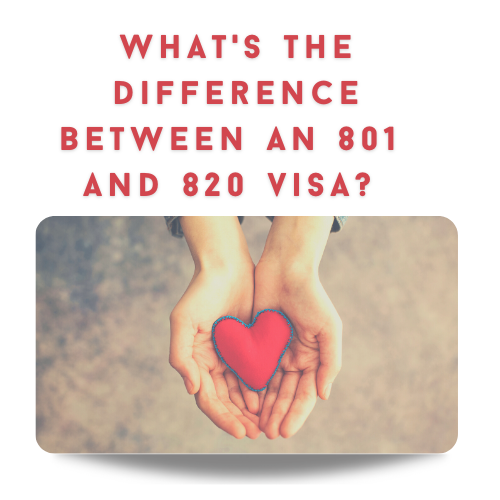
22 Jan What’s the Difference Between an 801 and 820 Visa? – Worldly Migration
What can I do while on Subclass 820/801 Partner Visa
One of the few perks of having lodged a 820/801 Partner Visa is your eligibility to enrol in Medicare, which is Australia’s universal health insurance scheme to access health and hospital services at low or minimal cost even before the grant of your 820/801 Partner Visa.
Proving that I am still in a genuine, committed relationship with my partner after 2 years of 820 Visa grant
Once 2 years have passed since you lodged your combined subclass 820/801 visa application, you will need to supply relevant documents to Immigration to confirm that you continue to meet visa grant requirements for the partner visa. You do not need to wait for the Department to contact you and should send your documents no earlier than 1 month before the 2-year period.
The types of evidence required at this stage include:
- Statutory Declarations by you and your partner relating to your relationship
- Statutory Declarations by two persons known to you and your partner about your relationship
- Police clearances, as applicable to your circumstances
- Updated documents relating to those previously supplied (e.g., new passport, marriage certificate of you and your partner have since married)
- Relationship evidence covering the period from lodgement of your combined subclass 820/801 visa application to date
How can I Sponsor my Partner for a Subclass 820/801 Visa?
If you are wanting to sponsor your partner, for them to come to Australia, you must be able to meet the following criteria:
- Must be at least 18 years old, and is either:
- An Australian Citizen; or
- An Australian Permanent Resident; or
- Eligible New Zealand Citizen.
What are other general criteria to apply for a combined Subclass 820/801 Partner Visa?
- The primary visa applicant must not be a holder of Subclass 771 Transit Visa at the time of submitting visa application
- Both the primary visa applicant and partner must be at least 18 years old
- In limited circumstances, applicants may still be eligible for a subclass 801 Partner (permanent) visa if the sponsoring spouse/partner has died, or any of the applicants suffered from domestic violence committed by the sponsoring spouse/partner
- Both the primary visa applicant and partner must be in a married, or a de facto relationship to the exclusion of others
For married applicants, the following must apply:
- both parties are legally married to each other, and the marriage must be valid under Australian law.
- both parties must have mutual commitment to a shared life as a married couple to the exclusion of all others. This means either party must not be in a polyamorous or polygamous marital situation.
- the relationship is genuine and continuing.
- live together or do not live separately on a permanent basis.
For de facto partners, the following must apply:
- Both parties are not legally married to each other.
- Both parties are not related by family, including adoptive family relationships.
- Both parties must have mutual commitment to a shared life as a married couple to the exclusion of all others. This means either polyamorous or polygamous relationship must not involve in the de facto relationship.
- The de facto relationship must have existed for at least 12 months immediately before the visa application date unless there are compelling and compassionate reasons for not meeting the 12-month relationship requirement.
- The relationship is genuine and continuing.
- Live together or do not live separately on a permanent basis.
Exceptions to the 12-month de facto relationship rule
If the Australian de facto partner of the primary visa applicant is or was a holder of a permanent humanitarian (Subclasses 200, 201, 202, 203, 204, 209, 210, 211, 212, 213, 215, 216, 217 or 866 visa) visa or is an applicant for a permanent humanitarian visa, the 12-month de facto relationship requirement does not apply.
De facto relationship registered under State or Territory law of Commonwealth of Australia is exempted from meeting the 12-month de facto relationship requirement. As of the time of writing, relationship registration recognised for this purpose only available in Australian Capital Territory (ACT), New South Wales, Queensland, South Australia, Tasmania, and Victoria.
To avoid refusals, it is best to consult with a Registered Migration Agent regarding your 820/801 application. Contact Worldly Migration today.



No Comments